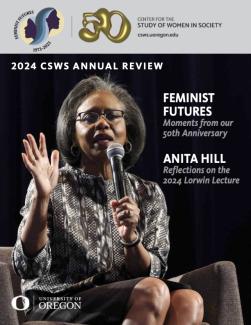Features:
- Anita Hill: Reflections on the 2024 Lorwin Lecture
- A Message from the CSWS Director, by Sangita Gopal, Associate Professor, Department of Cinema Studies
- Feminist Futures: Moments from the CSWS 50th Anniversary, by Jenée Wilde, Senior Instructor, Department of English
- Past Lessons, Future Visions: CSWS Alumni Symposium, by Jenée Wilde, Senior Instructor, Department of English
- Q&A: Bryant Taylor, by Jenée Wilde, Senior Instructor, Department of English
- UO Students Reflect on Working for CSWS
- Highlights and Testimonies: Envisioning Feminist Futures in Video, by Agnese Cebere, Pro Tem Instructor, Department of Art
- Designing a Visual Identity for the 50th, by Agnese Cenbere, Pro Tem Instructor, Department of Art
Faculty Research:
- Illustrating Resilience: Children’s Picture Books for Oppressive Times, by Isabel Millán, Assistant Professor, Department of Women’s, Gender, and Sexuality Studies
- Care: Samoan Feminism, Care Work, and Immaterial Labor, by Lana Lopesi, Assistant Professor, Department of Indigenous, Race, and Ethnic Studies
- Aliens at Home: Myanmar Wives and the Exercise of Border Biopolitics in Yunnan, China, by Xiaobo Su, Professor, Department of Geography
Graduate Student Research:
- ‘Feeling With’ Other Bodies: The Posthuman in Latin American Cinema, by Marena Fleites Lear, PhD Candidate, Department of Comparative Literature
- Power of the ‘Multitude’: Women’s Autobiographical Writings in Latin American Literature, by Magela Baudoin, PhD Candidate, Department of Romance Languages
- Re-examining Context, Culture, and Medium: Gender in South Asian and South Asian American Graphic Novels, by Anu Sugathan, PhD Student, Department of English
- Tempting Bad Taste: Unreading the Failure of Art, Fashion, and Food in Late Modernist Novels, by Min Young Park, PhD Candidate, Department of English
- White Women’s Linguistic Terrorism, by Annie Ring, PhD Candidate, Department of Philosophy
- A Queer Quantitative Inquiry: Sexual Injustices and Social Contexts, by W. Jamie Yang, PhD Candidate, Department of Sociology
- Disclosing Enslaved Women’s Resistance in Puerto Rico’s History of Slavery, by Rosa M. O’Connor Acevedo, PhD Candidate, Department of Philosophy

Anita Hill: Reflections on the 2024 Lorwin Lecture
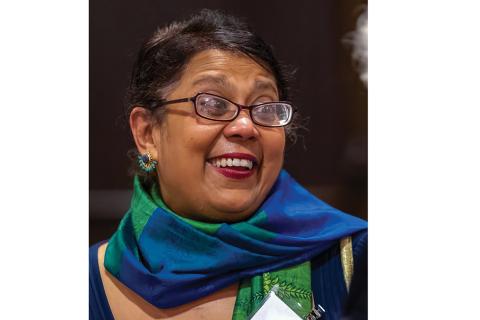
A Message from the CSWS Director
by Sangita Gopal, Associate Professor, Department of Cinema Studies
Thank you all for making the 50th anniversary celebrations of the Center for the Study of Women and Society so rich and fruitful! And filled with joy and remembrance. Indeed, it was an eventful 18 months where we collaborated with partners across the disciplines at the University of Oregon to showcase how diverse fields imagine feminist futures and archive feminist pasts at a time when gender and justice are once more at the forefront of our attention globally.

Feminist Futures: Moments from the CSWS 50th Anniversary
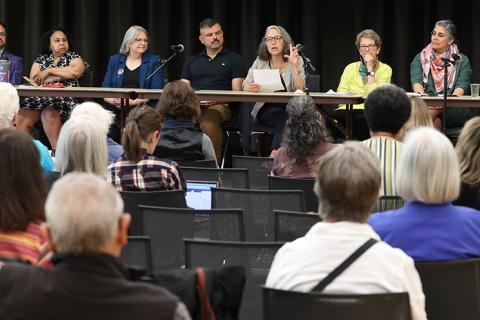
Past Lessons, Future Visions: CSWS 50th Anniversary Alumni Symposium
by Jenée Wilde, Senior Instructor, Department of English
On May 10, 2024, three panels of faculty affiliates, former grant fellows, and friends of the Center for the Study of Women in Society participated in our 50th Anniversary Alumni Symposium.
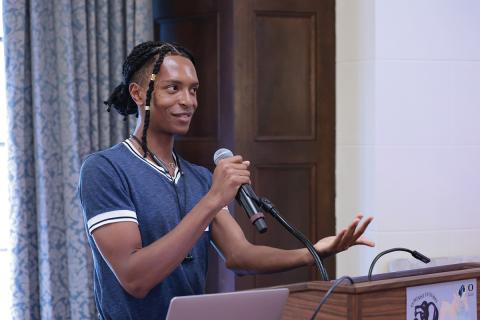
Q&A: Bryant Taylor
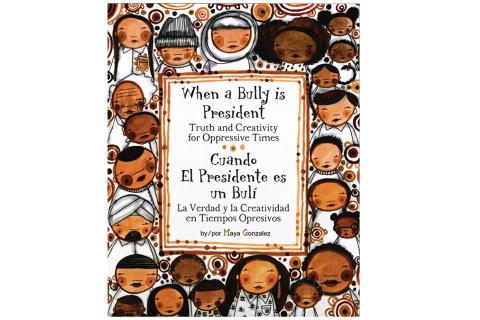
Illustrating Resilience: Children’s Picture Books for Oppressive Times
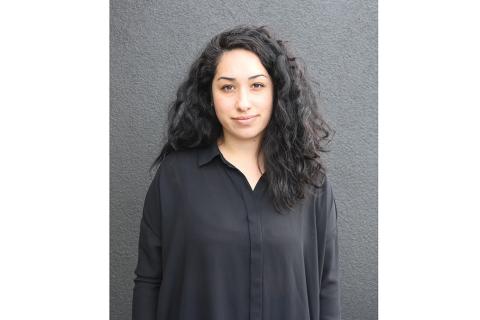
Care: Samoan Feminism, Care Work, and Immaterial Labor
by Lana Lopesi, Assistant Professor, Department of Indigenous, Race, and Ethnic Studies
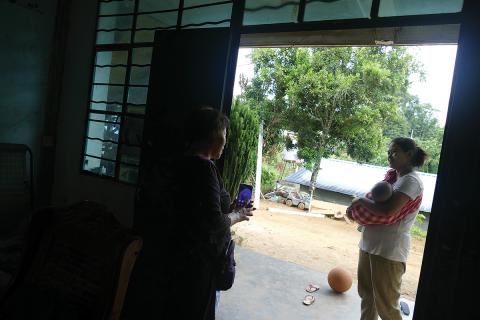
Aliens at Home: Myanmar Wives and the Exercise of Border Biopolitics in Yunnan, China
by Xiaobo Su, Professor, Department of Geography
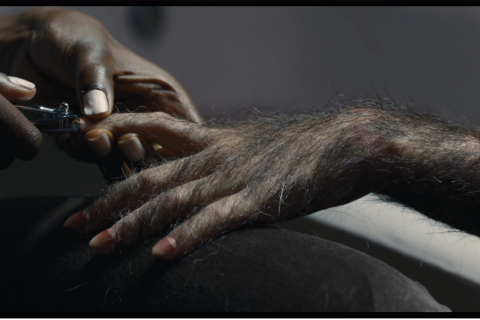
‘Feeling With’ Other Bodies: The Posthuman in Latin American Cinema
By Marena Fleites Lear, PhD Candidate, Department of Comparative Literature
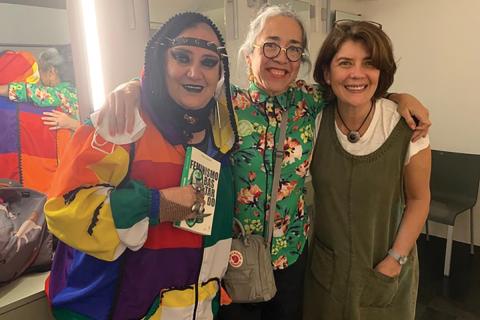
Power of the ‘Multitude’: Women’s Autobiographical Writings in Latin American Literature
by Magela Baudoin, PhD Candidate, Department of Romance Languages
Women’s autobiographical writing has historically faced devaluation within the realm of so-called “high” literature (Huyssen 2006). This marginalization stems from several factors: firstly, the misguided association of “literary” with “fiction,” which tends to discredit narratives perceived as not purely imaginative (Lejeune 1989; Molloy 1996); secondly, entrenched paradigms in modern Western thought...
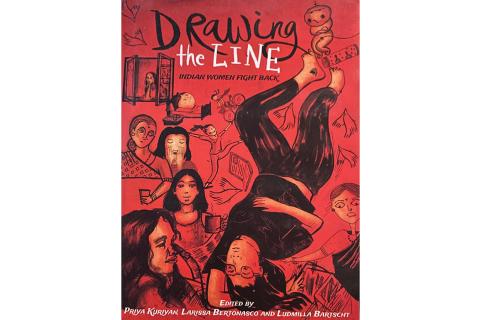
Re-examining Context, Culture, and Medium: Gender in South Asian and South Asian American Graphic Novels
by Anu Sugathan, PhD Student, Department of English
My interest in graphic narratives as a research topic emerged during my master of philosophy studies. While contemplating my thesis, I discovered various Indian graphic novels by contemporary writers and artists that brought back memories of my childhood comic books like Balarama, Balabhumi, and Champak. However, unlike earlier comic books, these graphic novels stood out due to their distinctive style, paper quality, and thematic depth...
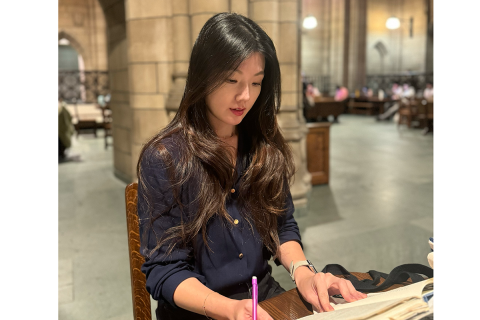
Tempting Bad Taste: Unreading the Failure of Art, Fashion, and Food in Late Modernist Novels
by Min Young Park, PhD Candidate, Department of English
Nella Larsen’s Quicksand opens with a vivid portrait of Helga Crane’s room. It is brimming with furniture and garments of her “rare and intensely personal taste” (1). The emphasis on the privacy of her taste is easily overlooked as it is soon followed by a disturbing remark by a white priest who claims that “Naxos Negroes…had good taste” because “[t]hey knew enough to stay in their place” (3)...
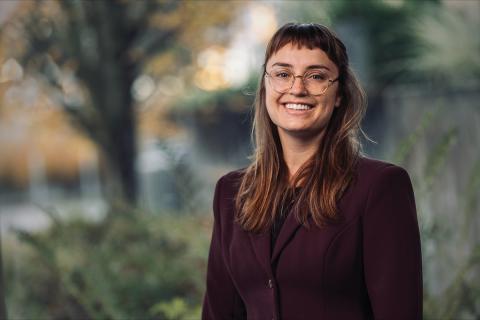
White Women’s Linguistic Terrorism
by Annie Ring, PhD Candidate, Department of Philosophy
J.L. Austin’s How to Do Things with Words demonstrates that language is not just descriptive but in some cases is performative. That is, Austin’s speech act theory argues that language itself performs, changes, or does things in the world. Speech act theory classically considered institutions like marriage, where a pronouncement weds people into a legally binding relation, or boat christening, where naming and blessing a boat before the maiden voyage protects its passengers (Austin).
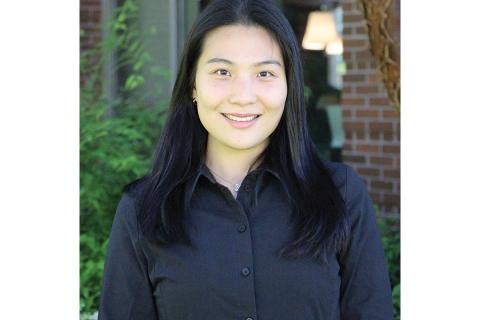
A Queer Quantitative Inquiry: Sexual Injustices and Social Contexts
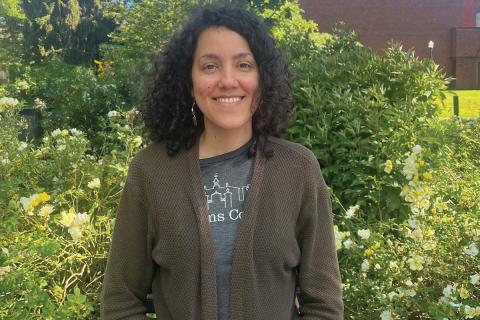
Disclosing Enslaved Women’s Resistance in Puerto Rico’s History of Slavery
by Rosa M. O’Connor Acevedo, PhD Candidate, Department of Philosophy


